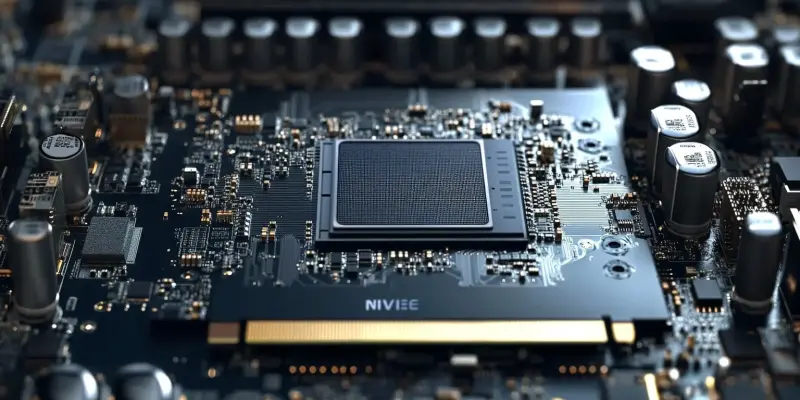Anticipation is building as gamers eagerly await the release of Nvidia’s latest RTX 5060 and 5060 Ti graphics cards. Key leaks and rumors have generated significant buzz in the gaming community, primarily due to concerns about the cards’ VRAM configurations, which may not meet the standards of future high-end gaming demands. Although featuring faster GDDR7 VRAM, the RTX 5060 will only offer 8GB, whereas the RTX 5060 Ti will come in two variants: 8GB and 16GB.
VRAM Concerns and Performance Benchmarks
A core issue stirring discontent among budget-conscious gamers is the seemingly modest VRAM offerings of these new cards. Recent benchmarks indicate that 8GB GPUs struggle with modern game titles, especially at higher settings and resolutions. TechSpot’s benchmark for “Stalker 2” showed poor performance for 8GB cards at 4K resolution under “Epic” settings, though performance improved significantly when settings were lowered to “High” and resolution was reduced to 1080p. The gaming community is worried that these new GPUs with lower VRAM could fall short in delivering the necessary experience for upcoming game titles.
Possible 12GB Variant of RTX 5070 Ti
Adding another layer of intrigue to the situation, the Eurasian Economic Union (EEU) listings suggest a potential 12GB variant for the RTX 5070 Ti. Nvidia initially showcased the RTX 5070 Ti with 16GB of VRAM at CES 2025, so a scaled-down version would not be unprecedented, aligning with the release patterns seen with the RTX 4070 Ti. While 12GB would offer a slight improvement over 8GB, it may still be insufficient for modern games featuring advanced graphics and ray tracing at 4K resolutions, further fueling concerns.
Nvidia’s Strategy with GDDR7 VRAM
Despite these concerns, Nvidia seems to be banking on the superior speed of GDDR7 VRAM technology incorporated in the RTX 50 series to offset the need for higher VRAM capacities. The faster memory is expected to enhance overall performance; however, it is also reportedly driving up production costs, complicating Nvidia’s efforts to balance performance with affordability. As production expenses rise, maintaining accessible prices for GPUs remains a significant challenge for the company.
Performance and Availability
So far, reviews have only been available for the higher-tier RTX 5090, which demonstrated a 27 percent performance improvement over its predecessor, despite higher memory capacity. This has led to speculation that the performance gains for the lower-tier products like the RTX 5060 and 5060 Ti might be even smaller. Players eagerly await further reviews to gauge the true performance capabilities of these new cards.
The release dates for these upcoming GPUs have been outlined, beginning with the RTX 5090 and 5080 expected to launch on January 30, carrying price tags of $999 and $1,999, respectively. Following their release, the RTX 5070 Ti is rumored to hit the shelves on February 20, with the 5070, 5060 Ti, and 5060 models to follow in subsequent weeks.
Conclusion
Excitement is mounting among gamers as they eagerly anticipate the release of Nvidia’s newest RTX 5060 and 5060 Ti graphics cards. The gaming community is abuzz with discussions and speculations, fueled by key leaks and rumors, particularly concerning the VRAM configurations of these cards. There are significant worries about whether the VRAM will meet the future demands of high-end gaming. Even though both cards boast faster GDDR7 VRAM, the RTX 5060 will be equipped with only 8GB of VRAM. In contrast, the RTX 5060 Ti will be released in two different versions: one with 8GB of VRAM and another with 16GB. This disparity in memory capacity has led to concerns about the longevity and performance capability of the cards, especially for gamers looking to future-proof their systems against upcoming game releases that may require more powerful hardware. Overall, the community’s excitement is tempered with some anxiety regarding these specifications, setting the stage for a highly anticipated launch.

